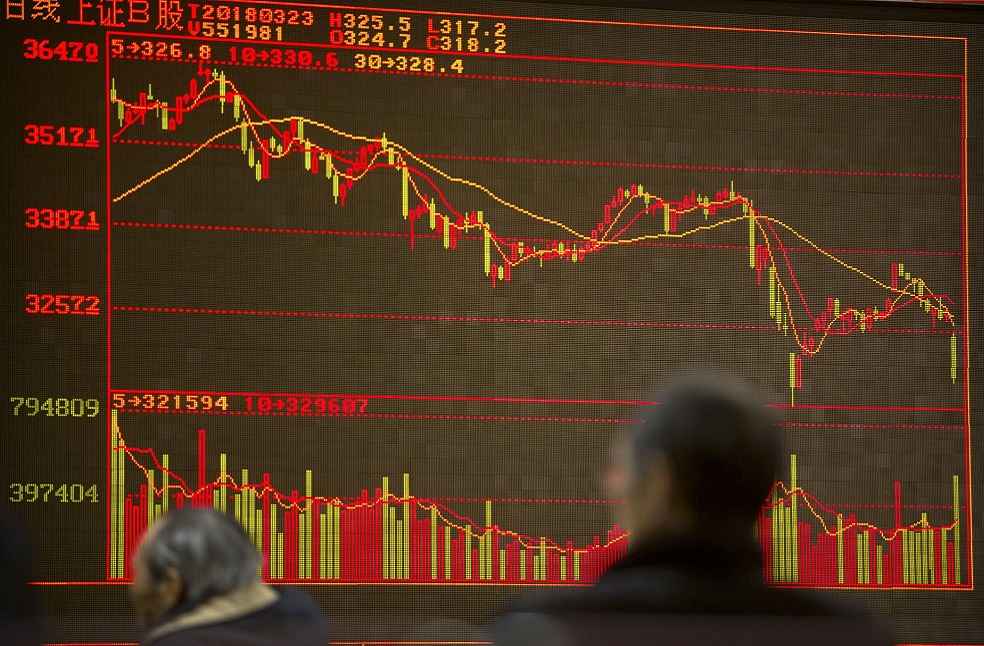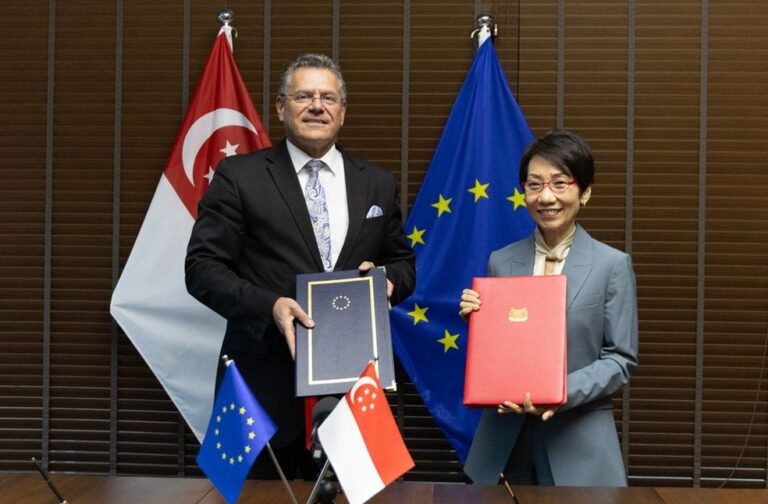Singapore and the European Union officially signed the European Union-Singapore Digital Trade Agreement (EUSDTA) today, strengthening the collaboration in digital trade. The agreement aims to establish clearer guidelines and greater legal certainty for both citizens and businesses, fostering a more secure and efficient digital trade landscape.
Singaporean Minister-in-charge of Trade Relations Grace Fu and EU Commissioner for Trade and Economic Security Maros Sefcovic signed the EUSDTA at The Treasury on High Street. The agreement serves as a complementary framework to the EU-Singapore Free Trade Agreement (EUSFTA), which has been in effect since 2019.

The key feature of the EUSDTA is setting global standards for digital trade and enabling seamless cross-border data flow without unnecessary restrictions. It covers regulations on e-signatures, spam control, cybersecurity, and other digital policies. Additionally, the agreement is expected to lower business costs and support the expansion of services.
Grace Fu emphasized that the signing of the EUSDTA marks a major milestone in bolstering digital economic collaboration between Singapore and the EU, especially amid global uncertainties. As the EU’s first bilateral digital economy agreement with an ASEAN member state, the EUSDTA will help strengthen digital connectivity between regions, Fu added.
The EUSDTA also reflects earlier digital trade agreements with Australia, the United Kingdom, New Zealand, Chile, and South Korea, outlining protocols for digital trade and cross-border data exchange.

To improve consumer protection, Singapore and the EU will introduce safeguards against fraudulent, misleading, or deceptive business practices that could negatively impact individuals engaged in online commerce.
Moreover, both parties will assist small and medium-sized enterprises (SMEs) in gaining access to and succeeding within the digital trade sector.
The EU ranks as Singapore’s fifth-largest goods trading partner, with bilateral trade exceeding $100 billion in 2024, making up 7.8% of Singapore’s total goods trade. It is also Singapore’s second-largest services trading partner, with trade in services reaching over $110 billion in 2023.
BUSINESS GENERAL | Trump Orders May Disrupt Indian Pharmaceutical, Global Drug Supply



